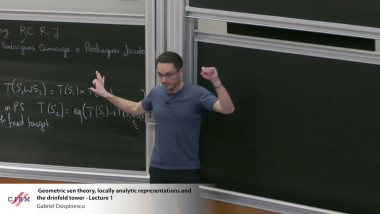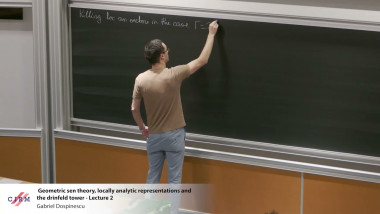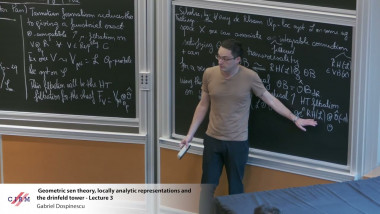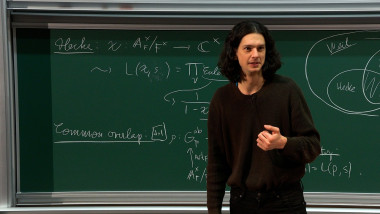Appears in collection : COGNAC - Conference On alGebraic varieties over fiNite fields and Algebraic geometry Codes
For a long time people have been interested in finding and constructing curves over finite fields with many points. For genus 1 and genus 2 curves, we know how to construct curves over any finite field of defect less than 1 or 3 (respectively), i.e. with a number of points at distance at most 1 or 3 to the upper bound given by the Hasse-Weil-Serre bound. The case of genus 3 is still open after more than 40 years of research. In this talk I will take a different approach based on the random matrix theory of Katz-Sarnak, that describe the distribution of the number of points, to prove the existence, for all $\epsilon>0$, of curves of genus $g$ over $\mathbb{F}_{q}$ with more than $1+q+(2 g-\epsilon) \sqrt{q}$ points for $q$ big enough. I will also discuss some explicit constructions as well as some details about the asymmetric of the distribution of the trace of the Frobenius for curves of genus 3 .This is a joint work with J. Bergström, E. Howe and C. Ritzenthaler.














